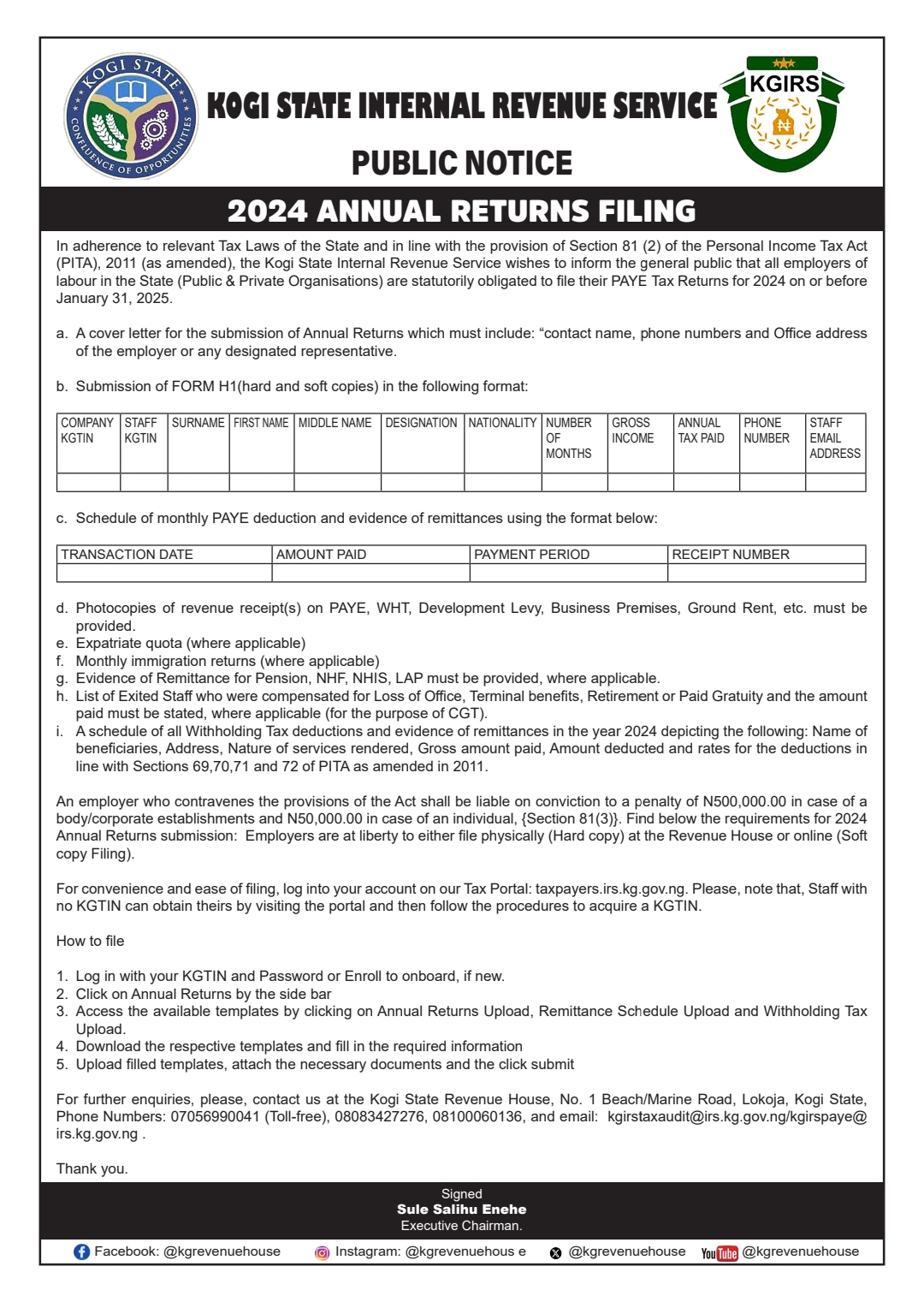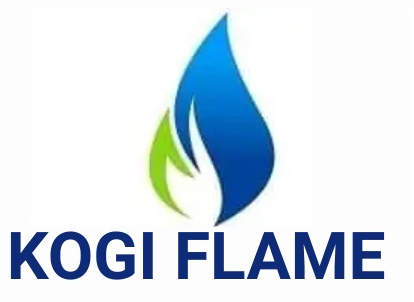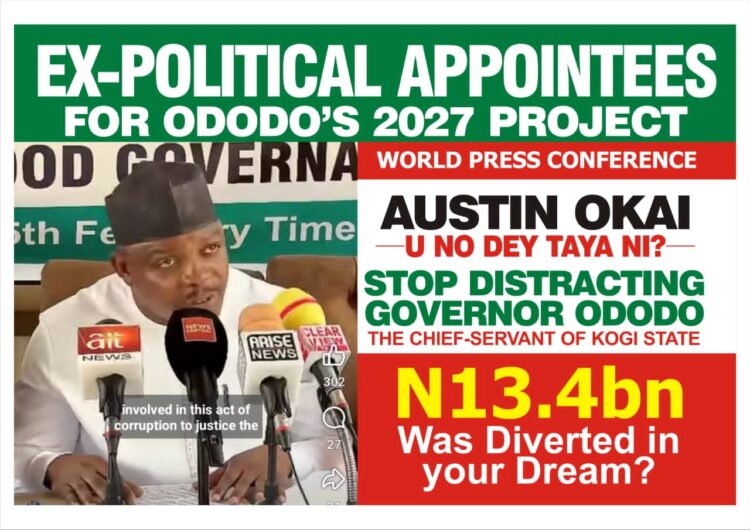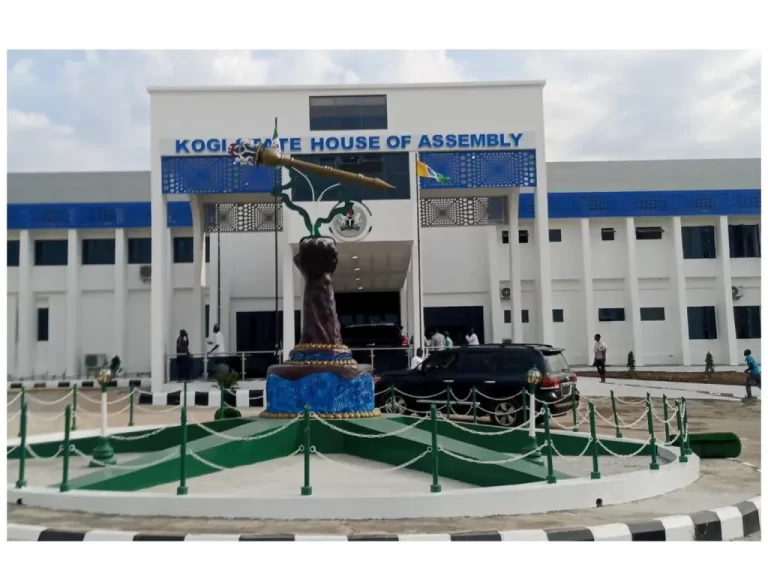Warning: Attempt to read property "post_excerpt" on null in /home/kogiflam/public_html/wp-content/themes/morenews/single.php on line 55


Kogiflame
Kehinde Emmanuel, ilorin
Managing Consultant/Chief Executive Officer, Maroct Consultants Group, Chief Ubani, Uzoma Francis, (FCTI), has called on the 36 Governors in Nigeria to stand up and collectively demand for the Stamp Duties revenue without fear or favour, adding that it is their Constitutional Right to do so.
He opined that all the stamp duties revenue belongs to the different states of the Nigerian federation.
Ubani spoke in Abuja on ‘Stamp duties: Practical approach on fostering united front on issues bothering on the collective interest of the States,’ during a meeting of the Nigerian Governors Forum on Tuesday, March 15, 2022.
He stated that said that the Federal Government of Nigeria through the Federal Inland Revenue Service, is only an agent to states on collection of stamp duties.
According to him, the different states of the Federation should take note that, in respect of the collection of stamp duties/levies revenue in Nigeria, the states are the principals; while the Federal Government (FG) through the Federal Inland Revenue Service, (FIRS) is only “Constitutionally designated collection agent.”
He said consequently, the FG/FIRS is accordingly mandated by the provisions of Section 163 (b) of the Constitution of the Federal Republic of Nigeria, 1999, as amended, which, according to him, means that FG/FIRS is obliged to follow the strict dictates and spirit of the said constitutional provisions.
He said the alleged orchestrated deception, unfair, and unwholesome collection practices should stop, particularly in the payment of the net proceeds of the duties/levies collected, to the different states of the federation in compliance with the constitution which is the supreme law of Nigeria.
He stated that there are constitutional provisions validating his assertion.
Ubani said, “Let us look at sections 162 and 163 of the Constitution of the Federal Republic of Nigeria, 1999, as amended:
“Section 162 (1) of the Constitution of the Federal Republic of Nigeria, 1999, as altered, enjoins the Federation to maintain a special account to be called “Federation Account” into which shall be paid all revenues collected by the Government of the Federation, except the proceeds from the personal income tax of the personnel of the Armed Forces of the Federation, the Nigerian Police Force, the Ministry or Department of government charged with the responsibility for Foreign Affairs and the residents of the Federal Capital Territory, Abuja.
“Section 162 (10) (a) of the said Constitution provides thus: 162 (10) “For the purposes of subsection (1) of this section “revenue” means any income or return accruing to or derived by the Government of the Federation from any source and includes – (a) any receipt, however, described, arising from the operation of any law…”. Thus, stamp duties could be said to constitute “revenue” within the meaning of this section.
“He added, however: Section 163 of the Constitution of the Federal Republic of Nigeria, 1999, as altered, provides thus:
“Where under an Act of the National Assembly, tax or duty is imposed in respect of matters specified in item D of Part II of the Second Schedule to this Constitution, the net proceeds of such tax or duty shall be distributed among the States on the basis of derivation and accordingly
“Where such tax or duty is collected by the Government of a State or other authority of the State, (such as SIRS) the net proceeds shall be treated as part of the Consolidated Revenue Fund of the State; (In line with Section 4(2) of the Stamp Duties Act)
“What the Constitution is saying here-above is: Hey; the tax or duty the Government of a State or the State’s IRS collects here, belongs to that State in its entirety to KEEP, but that the net proceeds shall be treated as part of the Consolidated Revenue Fund of the State.
“where such tax or duty is collected by the Government of the Federation or other authority of the Federation, (such as FIRS) there shall be paid to each State, at such times as the National Assembly may prescribe, a sum equal to the proportion of the net proceeds of such tax or duty that are derived from the State”. (In line with Section 4(1) of the Stamp Duties Act)
“The intendment of the Constitution here-above is: Look-here, the tax or duty the Government of the Federation or the FIRS collects here, does NOT in any way belong to the Federal Government, that you; the FG/FIRS is “ONLY an AGENT of COLLECTION” to the different States of DERIVATION, and thereafter, there SHALL be paid to each State, a sum equal to the proportion of the net proceeds of such tax or duty that are collected/derived from the State. That you; the FG/FIRS is only entitled to AGENCY-COMMISSION, which is to deduct the cost of collection and/or administration cost, that is ALL. That You cannot Keep the TAX or DUTY so COLLECTED.
“Paragraph 7 (Item D), Part II of the Second Schedule to the Constitution of the Federal Republic of Nigeria, 1999, as amended, which is on Concurrent Legislative List provides thus:
“In the exercise of its powers to impose any tax or duty on – (a) Capital gains incomes or profit of persons other than companies; and (b) documents or transactions by way of stamp duties.
“The National Assembly may, subject to such conditions as it may prescribe, provide that the collection of any such tax or duty or the administration of the law imposing it shall be carried out by the Government of a State or other authority of a State”. (Such as States’ IRS).
“Section 1 (1) of the Constitution of the Federal Republic of Nigeria, 1999, as altered, proclaims its supremacy.
“Section 1 (3) of the said Constitution, further provides that if any law is inconsistent with the provisions of the Constitution, the Constitution shall prevail, and that other law shall, to the extent of the inconsistency be void.”
The tax consultant said that Stamp Duties Revenue streams is a highly technical area of taxation that is very much misunderstood and very highly misinterpreted by many.
He advised that State Governments should be very careful in engaging technical support/advisers in the area of Stamp Duties Revenue Head, as according to him, many that profess, they know, are allegedly misunderstanding and misinterpreting the provisions of the Stamp Duties Act and the provisions of the Constitution of Federal Republic of Nigeria, 1999, as amended, as it concerns stamp duties.
Ubani said, “The different State Governments are strongly advised and enjoined, as a matter of urgency, to seriously-overhaul, review and domesticate Stamp Duties and Capital Gains Laws, in their various States, for effective and optimal collection of stamp duties and capital gains tax revenue in their different States.
“For quick and immediate wins: Section 115 of the Stamp Duties Act, empowers the Governor of a State to make Regulations to the further and better carrying into effect of the objects and purposes of this Act, among others.
“There is urgent need to provide technical training and capacity development for tax administrators and key staff of the States Internal Revenue Service for efficient service delivery and to avoid misinterpretation and arbitrariness.”
He added, “The different states of the Federation, should take note that, in respect of the collection of stamp duties/levies revenue in Nigeria, the states are the principals; while the FG through the FIRS, is only “Constitutionally designated collection agent.” Therefore, the FG/FIRS is accordingly mandated by the provisions of Section 163 (b) of the Constitution of the Federal Republic of Nigeria, 1999, as amended, which means that FG/FIRS is obliged to follow the strict dictates and spirit of the said Constitutional Provisions. The orchestrated deception, unfair, and unwholesome collection practices should stop, particularly in the payment of the net proceeds of the duties/levies collected, to the different states of the Federation in compliance with the Constitution which is the supreme law of Nigeria.”




